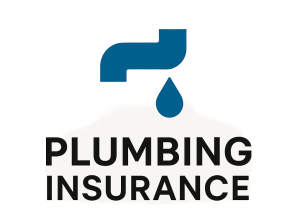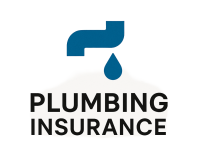The Real Cost of Plumbing Insurance Explained – What Every Plumber Needs to Know
Plumbing might not seem like the riskiest job in the world, but one wrong twist of a wrench or an unnoticed leak can result in thousands in damages. That’s why having the right insurance for plumbers isn’t just a good idea—it’s essential. But how much does it actually cost?
In this comprehensive guide from Plumbing Insurance, we’ll break down the plumbers insurance cost, explore what factors drive premiums up or down, and show you how to get the right coverage without breaking the bank. We’ll cover everything from general liability insurance for plumbers to niche options like residential plumbing insurance, helping you make smart, informed decisions for your business.
Introduction – Why Plumbing Insurance Isn’t Optional
Understanding the Financial Risks of Plumbing
Whether you’re fixing a residential leak or handling a large commercial installation, one mistake could lead to major property damage. A burst pipe in a newly renovated bathroom? That’s potentially a $10,000+ repair job. Without business insurance for plumbers, you could be personally liable.
Lawsuits, customer disputes, stolen tools, damaged property—these aren’t hypothetical scenarios. They happen all the time. And when they do, uninsured or underinsured plumbers find themselves in serious financial trouble.
The Rise of Liability Claims in Plumbing Jobs
With more homeowners renovating and increasing scrutiny on contractor work, liability claims are on the rise. Having proper liability insurance for plumbers is no longer an option—it’s a requirement.
On platforms like Yelp or Reddit, terms like “licensed and insured plumbers near me” are now common search filters for homeowners. No one wants to take a chance on someone who isn’t backed by reliable coverage.
What is Plumbing Insurance and Why It Matters
Key Components of Insurance for Plumbers
Plumbing insurance isn’t a single product—it’s a package. Here’s what’s typically included in a comprehensive plumbers insurance cover:
-
General Liability Insurance – Covers bodily injury and property damage to third parties.
-
Plumbers Public Liability Insurance – Protects you from lawsuits related to accidents during your work.
-
Tool & Equipment Insurance – Covers loss or damage to your tools.
-
Commercial Auto Insurance – If you use a van or vehicle for work.
-
Workers’ Compensation – Required if you have employees.
-
Business Interruption Insurance – Covers income lost due to suspended operations.
Each of these policies plays a role in ensuring your plumbing business runs safely and smoothly.
Business Insurance vs. Liability Insurance for Plumbers
It’s important to understand the distinction. Business insurance for plumbers is a broad term that includes everything from liability coverage to property and auto. On the other hand, liability insurance plumbers specifically protects you against legal claims from third parties.
For solo operators or small businesses, liability insurance may be enough to get started. But as your business grows, a full insurance plumbers policy becomes crucial.
Plumbers Insurance Cost – A Breakdown
What Affects the Plumbers Insurance Cost?
Several variables affect how much you’ll pay, including:
-
Location – States like California have higher costs due to stricter regulations.
-
Experience – More experience generally means lower risk.
-
Business Size – More employees = more exposure.
-
Claims History – Prior claims can raise your rates.
-
Services Offered – High-risk services (like gas or sewage) increase premiums.
This is why plumbers insurance quotes can vary so widely. A part-time residential plumber may pay as little as $600 per year, while a full-time commercial operator could pay over $3,000.
Comparing Costs: Residential vs. Commercial Coverage
If your work is primarily in homes, residential plumbing insurance is often more affordable. However, that affordability comes with limits. You might not be covered for commercial properties, larger projects, or subcontracted work.
For plumbers handling both residential and commercial jobs, you’ll need a broader plumbers insurance cover to avoid gaps in protection.
Evaluating Plumbers Insurance Quotes
Not all quotes are created equal. When you compare plumbers liability insurance quotes, look beyond the price. Pay attention to:
-
Coverage limits
-
Deductibles
-
Exclusions
-
Add-on options
-
Provider reputation
You want a policy that offers the right balance of affordability and reliability. If something goes wrong, you’ll thank yourself for not choosing the cheapest plan.
Types of Insurance for Plumbers
General Liability Insurance for Plumbers
This is the foundation of any plumbing insurance package. It protects against claims of bodily injury or property damage caused by your work. Think of it as your legal shield—it pays for legal defense, settlements, and even medical bills.
Plumbers Public Liability Insurance
This is especially important for plumbers working in public or third-party spaces. If a bystander gets injured because of your work or a client trips over your tools, this coverage kicks in.
Without plumbers public liability insurance, you’re taking a huge risk every time you show up on site.
Specialized Policies – Residential Plumbing Insurance & More
For plumbers who focus on homes, residential plumbing insurance ensures you’re protected where it matters most—inside someone’s living space.
Also consider these additional coverages:
-
Plumbers insurance for homeowners – Coverage that protects both the plumber and the homeowner from disputes.
-
Plumbers report for insurance – A professional damage report that homeowners or businesses can use to file claims after a plumbing disaster.

